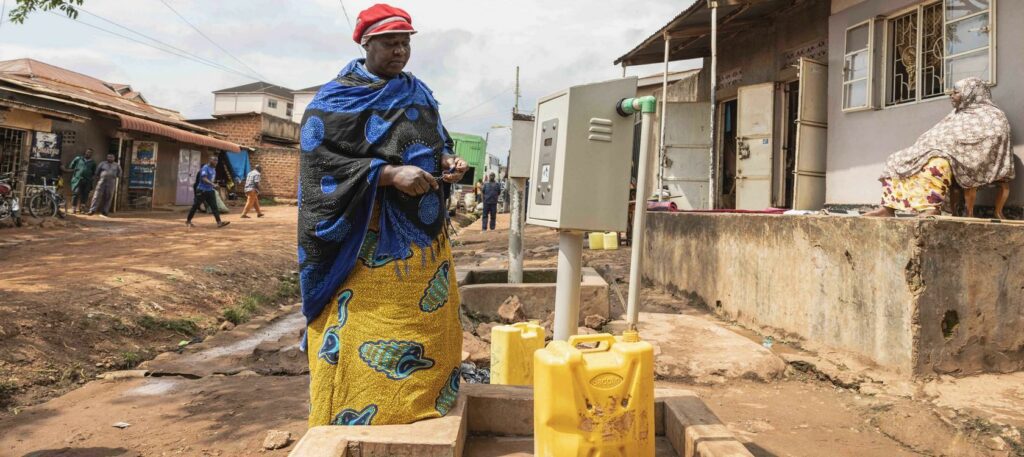Water any time of day
In the most precarious neighborhoods, drinking water is mainly distributed via standpipes. The system works on the basis of tokens, previously purchased from vendors. “When stores were closed, for example in the evening or at night, we couldn’t buy water, we had to wait until the next day. It was complicated, we always had to anticipate and we can’t have emergencies,” explains 67-year-old Kaggwa Tattu.
But that was before NWSC began modernizing its systems. The pilot standpipe in the Kisenyi district, co-financed by KfW and AFD as part of a project to improve access to water in the city’s precarious neighborhoods, enables users to recharge their token via mobile payment. “We can now access water 24/7. It’s changed our lives,” adds Kaggwa.
Further reading: Water management worldwide: 12 AFD-Backed Projects
Improved distribution
Mobile payment is not the only advantage of this new system. “We now have automatic meter reading, which means we can see automatically what has been consumed at each terminal,” says Tayebwa Oteran, Head of Prepaid Billing Systems at NWSC. “Before, these readings were done by hand, which was much more laborious.”
In addition, the standpipes are now equipped with a transmitter that alerts the control center if they break down, and interventions have become much more efficient.
More than 1,400 standpipes of this type are currently being installed in various precarious districts of the city, reducing the distance for users and improving access to drinking water for all.
It’s all part of the public operator NWSC’s urban “pro-poor” program, whose pricing scale is designed on the principle of “equalization”, where individual and commercial customers subsidize the cost of water service for the most deprived. Prepaid standpipes (priced at 25 shillings per 20-liter drum) are four times cheaper than domestic connections and half the price of traditional standpipes. In total, 450,000 people will benefit from this project.
Source link : https://www.afd.fr/en/actualites/making-water-accessible-ugandas-low-income-districts
Author :
Publish date : 2023-10-09 07:00:00
Copyright for syndicated content belongs to the linked Source.
